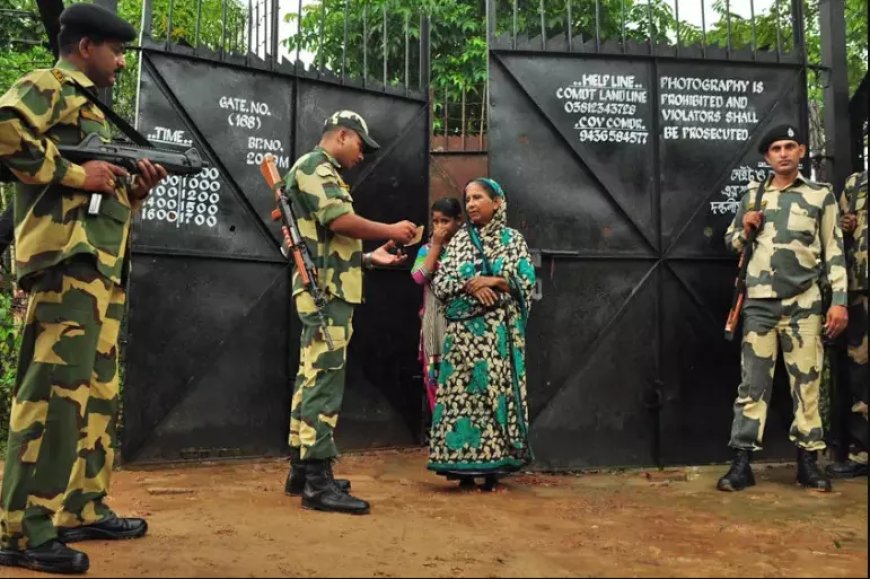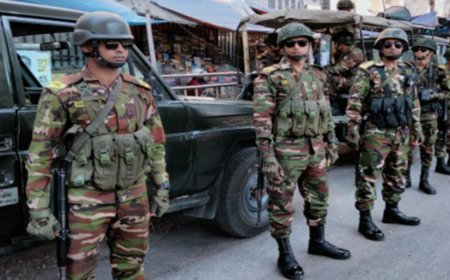The Growing Concern Along the India-Bangladesh Border
Pakistani ships are now docking at Bangladeshi ports, and the previous directive to inspect all cargo on these vessels has been lifted. This is just one of several growing concerns.

The most alarming implication of Bangladesh’s note verbale to India on Monday, demanding the extradition of deposed Prime Minister Sheikh Hasina from Delhi to Dhaka, is the evident decline in bilateral relations between the two nations.
This deterioration poses a significant threat to India’s security along its eastern frontier. Historically, Bangladesh was occasionally used by terrorist elements as a launchpad for attacks on India, particularly in the northeast. Sheikh Hasina’s resolute efforts to root out such elements marked a period of improved security. However, following her departure to Delhi on August 5, Dhaka’s relations with Islamabad have notably warmed, escalating India’s eastern security concerns.
In just the past week, at least eight terror suspects with Bangladeshi connections were apprehended in Assam, Kerala, and West Bengal. Many were identified as members of the Ansarullah Bangla Team (ABT), an Al Qaeda-linked organization in Bangladesh banned for its role in high-profile attacks, such as the murder of blogger Avijit Roy in Dhaka. The operatives had been sent to India for recruitment purposes, with one setting up an unauthorized madrasa in West Bengal’s Murshidabad district to indoctrinate 30-40 students. Alarmingly, one of the arrested suspects had his name registered in the voters’ lists of two different assembly constituencies in the district.
Another suspect, Javed Ahmed Munshi, a 58-year-old linked to the terror outfit Tehreek-ul-Mujahideen, was arrested in Canning, West Bengal. Munshi, who possessed an Aadhaar card with a Srinagar address, had reportedly been tasked by Lashkar-e-Toiba (LeT) handlers to scout a secure route through the India-Bangladesh riverine border to reach Dhaka.
Indian security experts now fear Pakistan might exploit Bangladesh as a corridor to smuggle arms into India’s northeast. This concern has been amplified by reports that Pakistani ships are docking at Bangladeshi ports without undergoing the previously mandated cargo inspections.
Meanwhile, developments within Bangladesh have raised additional red flags. Last week, Bangladeshi courts unexpectedly revised the death sentence of Paresh Baruah, chief of the United Liberation Front of Assam (ULFA), to life imprisonment. Baruah was convicted for orchestrating a 2004 arms smuggling operation that involved a massive cache of weapons reportedly intended for insurgents in India’s northeast.
Further, the courts acquitted a former Bangladesh National Party (BNP) minister and five others previously sentenced to death for their involvement in the same operation. The arms haul, consisting of nearly 5,000 firearms, 840 rocket launchers, 27,020 grenade launchers, and over 11 million bullets, had been seized en route to India.
Concerns deepened in August when Jashimuddin Rahmani, the ABT chief, was granted bail in a 2013 blogger murder case. Meanwhile, fringe suggestions, such as a professor’s proposal for Bangladesh to pursue a nuclear deal with Pakistan to counter India, have only added to the tension.
This situation bears eerie parallels to past incidents, such as the 2014 Burdwan blast in West Bengal, which exposed a terror network led by the Jamaat-ul-Mujahideen Bangladesh (JMB). This same group had orchestrated the 2005 Bangladesh bombings and the devastating 2016 Holy Artisan Bakery attack in Dhaka.
While Sheikh Hasina’s administration faced criticism for autocratic tendencies, India’s support for her regime was primarily motivated by security concerns in the region. However, with ties between Delhi and Dhaka rapidly deteriorating and Bangladesh becoming a hotspot for global geopolitics, India must recalibrate its strategy. Ensuring stability on its eastern border is crucial to avoid turning it into a challenge as severe as the western frontier.
Note: India’s border with Bangladesh spans approximately 4,096 kilometers, making it the fifth longest land border in the world, compared to the 3,323-kilometer border with Pakistan.
What's Your Reaction?





















































































